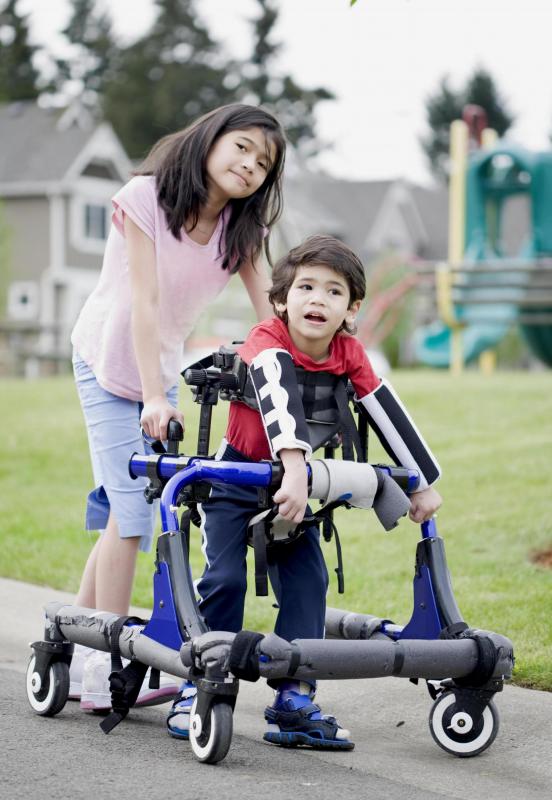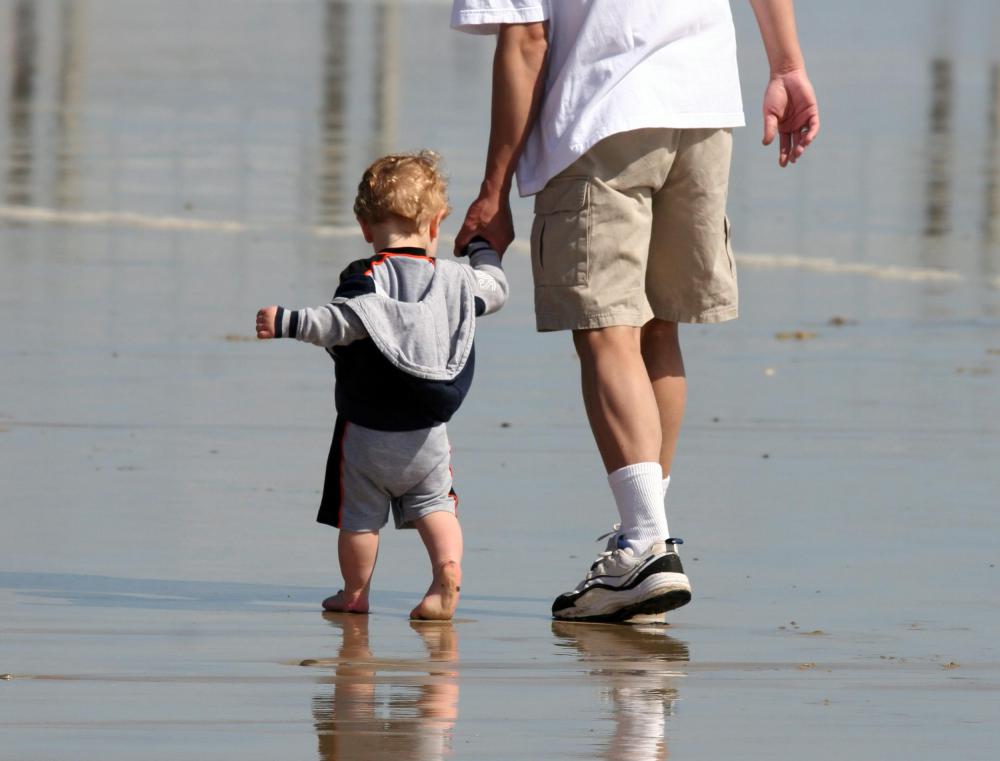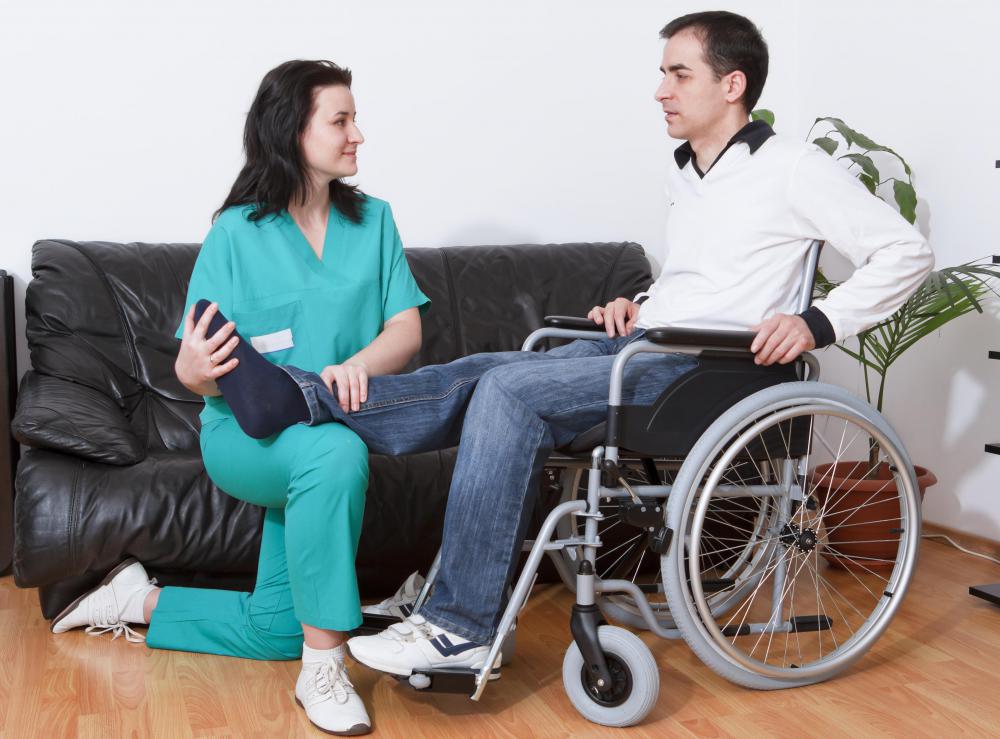At WiseGEEK, we're committed to delivering accurate, trustworthy information. Our expert-authored content is rigorously fact-checked and sourced from credible authorities. Discover how we uphold the highest standards in providing you with reliable knowledge.
What is Monoplegia?
Monoplegia is a condition involving the nervous system in which a muscle group, single muscle, or single limb is paralyzed. A closely related condition is monoparesis, in which people experience weakness in a single limb, muscle group, or muscle. Both conditions can be caused by a range of issues, with cerebral palsy being a very common cause of monoplegia. Some treatment options are available, depending on what is causing the paralysis.
Injuries to the spinal cord, degenerative brain diseases, brain tumors, stroke, nerve damage, and multiple sclerosis can all lead to monoplegia or monoparesis in addition to cerebral palsy. A patient may be born with the issue, or may develop it later in life. The onset may start with some weakness and loss of control, which eventually degenerates to paralysis, or it may be acute, as seen when a car accident damages the spinal cord and the nerves which innervate a particular limb or muscle group are damaged so that they cannot carry signals from the brain.

If monoplegia is recognized before paralysis sets in, sometimes treatment and intervention can be used to slow the rate of progression or to arrest the progression of the damage. Treatments can include physical therapy and surgery to address the root cause of the condition. When a limb or muscle group becomes paralyzed, physical therapy can be used by the patient to cope with the paralysis and learn adapting skills.

Monoplegia is a very mild presentation of cerebral palsy, and children with this condition may require no special treatment or care. Physical therapy can be recommended to support the child. If a leg is involved, assistive devices and gait training may be helpful to increase independence and confidence, and if an arm is involved, physical therapy can be used to help the child develop adaptive skills. People with monoplegia are usually capable of leading independent lives, although they may require some accommodations.

A neurologist can examine a patient with monoplegia to learn more about the cause and which muscles and nerves are involves. This information can be useful when developing a treatment and management plan for the patient. It is also important to have a baseline for evaluation so that if the monoplegia progresses, the neurologist can keep track of how fast it is moving. If a patient is in treatment and the condition appears to be improving, the same baseline can be used to measure improvement.
AS FEATURED ON:
AS FEATURED ON:

















Discussion Comments
@Azuza: SM isn't a condition; it's an uncommon, mild sort of CP. I don't understand why you fail to believe that children with SM can live alone..
It's the mildest form of CP and people with it generally have a good prognosis/life.
@Azuza - The human body is surprisingly resilient. I know that a lot of people who are blind or deaf have other senses that are hypersensitive. It's almost as if the body is making up for the lost sense.
I'll bet the same is true of muscles. If one single muscle were paralyzed, I'm sure the surrounding muscles would compensate.
I find it a little surprising that children with this condition might not need special care. But then again, I suppose if only a single muscle was paralyzed a person could live somewhat normally.
On the other hand, it probably depends on what muscle! For example, I know there are certain muscles that are used during breathing. If one of those muscles was paralyzed I'm sure some kind of accommodation would have to be made.
Post your comments